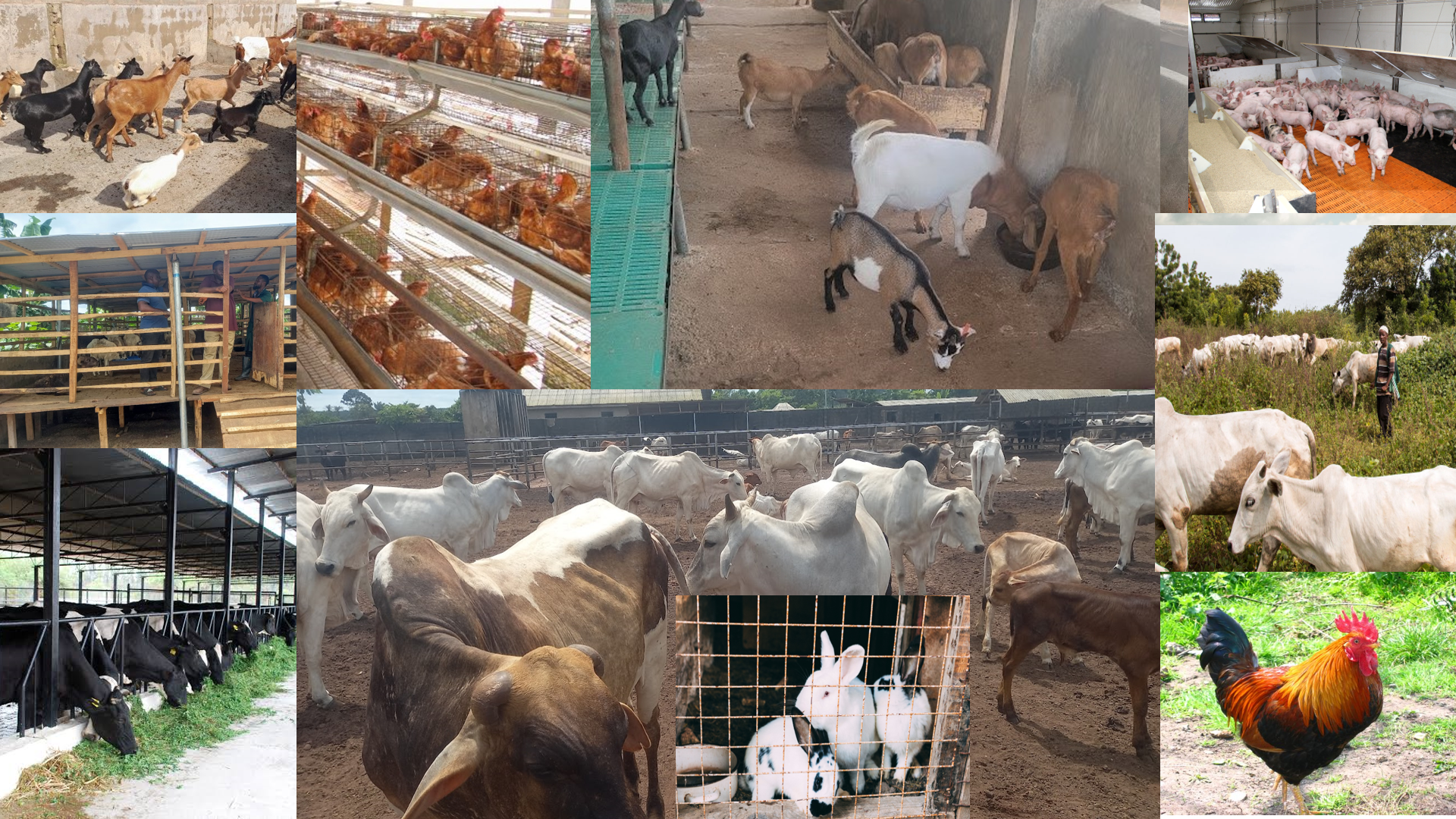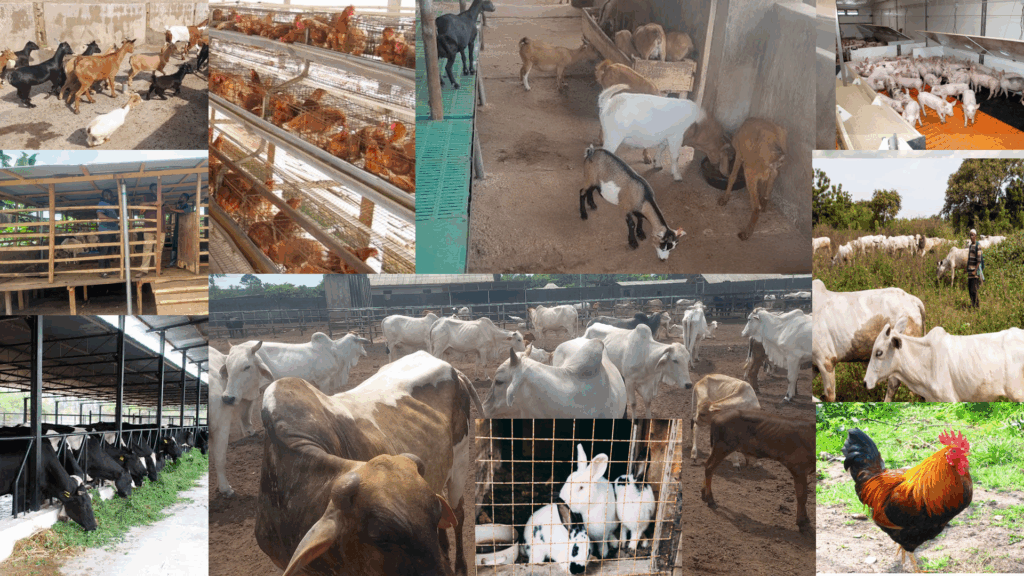
Keywords: Livestock Management Software, Agribusiness, Sustainable Farming, Livestock Farming, Farm Management.
Livestock management is a critical aspect of agribusiness that ensures the health, productivity, and profitability of farm animals. Proper management practices can lead to increased yields, healthier animals, and sustainable farming operations. This Q&A article explores the best practices for livestock management, providing valuable insights for farmers in Nigeria and across Africa.
Q1: What are the essential components of effective livestock management?
A1: Effective livestock management involves several key components, including nutrition, housing, health care, and breeding. Each of these elements plays a vital role in ensuring the overall well-being and productivity of livestock.
- Nutrition: Providing balanced and adequate nutrition is crucial. Livestock should have access to clean water and a diet that meets their specific nutritional needs. For instance, dairy cows require a diet high in protein and energy to support milk production. In Nigeria, the Oyo State Agricultural Development Program has implemented nutritional programs that significantly boosted milk yield.
- Housing: Proper housing protects animals from harsh weather conditions and predators. It also helps prevent the spread of diseases. For example, free-range poultry farming in Nigeria has shown significant success, as it allows birds to forage naturally while being protected from predators. In Kenya, improved poultry housing designs have led to a decrease in mortality rates and an increase in egg production.
- Health Care: Regular veterinary check-ups, vaccinations, and parasite control are essential for maintaining livestock health. In Kenya, the use of mobile veterinary services has proven effective in reaching remote areas and providing timely healthcare. Similarly, in Ghana, the Ghana Veterinary Medical Association provides mobile clinics that travel to rural areas to administer vaccines and treatments.
- Breeding: Implementing strategic breeding programs can improve herd quality and productivity. Selecting animals with desirable traits for reproduction ensures the next generation is healthier and more productive. In South Africa, the National Livestock Improvement Scheme focuses on breeding high-quality cattle that are well-adapted to local conditions, leading to improved beef and dairy production.
Q2: How can technology enhance livestock management practices?
A2: Technology plays a significant role in modernizing livestock management. Several technological solutions can enhance efficiency and productivity:
- Livestock Management Software: Software solutions help farmers track animal health, nutrition, and breeding schedules. For example, Farm360 in Nigeria offers a comprehensive livestock management system that provides real-time data and analytics.
- Wearable Devices: Devices like GPS trackers and health monitors can provide real-time information on the location and health status of livestock. In South Africa, farmers use these devices to monitor cattle movements and detect early signs of illness.
- Automated Feeding Systems: These systems ensure that animals receive the right amount of feed at the right time, reducing waste and improving nutrition. In Uganda, automated feeding systems have been implemented in large-scale pig farms, resulting in significant cost savings and improved growth rates.
Q3: What are some sustainable practices for livestock management?
A3: Sustainable livestock management practices help preserve the environment while ensuring the long-term viability of farming operations. Some of these practices include:
- Rotational Grazing: This involves moving livestock between pastures to prevent overgrazing and allow vegetation to recover. In Ethiopia, rotational grazing has been shown to improve soil fertility and increase pasture productivity.
- Waste Management: Proper disposal and recycling of livestock waste can prevent environmental pollution. In Ghana, some farms use biogas digesters to convert animal waste into renewable energy, reducing reliance on fossil fuels.
- Integrated Farming Systems: Combining livestock farming with crop production can create a symbiotic relationship where animal manure fertilizes crops, and crop residues feed the animals. This practice is common in Nigeria and has been successful in improving farm productivity and sustainability.
Q4: Can you provide an example of successful livestock management in Africa?
A4: One notable example of successful livestock management is the M-Farm initiative in Kenya. M-Farm is a mobile-based service that provides farmers with real-time market prices, weather updates, and farming tips. It has empowered livestock farmers by offering valuable information that helps them make informed decisions. The initiative has led to improved livestock productivity and increased incomes for many farmers in the region.
In Nigeria, the successful implementation of the Oyo State Agricultural Development Program has seen significant improvements in dairy production through better nutrition and health care practices. Similarly, in Ghana, the introduction of mobile veterinary clinics by the Ghana Veterinary Medical Association has drastically reduced livestock mortality rates and improved overall animal health.
Conclusion
Adopting best practices in livestock management is crucial for achieving optimal productivity and sustainability in agribusiness. By focusing on nutrition, housing, health care, and breeding, and leveraging technology and sustainable practices, farmers can significantly enhance their operations. The success stories and examples from across Africa highlight the potential for transformation in the livestock sector, offering valuable lessons for farmers in Nigeria and beyond.
Invest in these best practices, and witness the remarkable impact they can have on your livestock management efforts. For more detailed insights and actionable tips, visit AgribusinessSpace.com.




